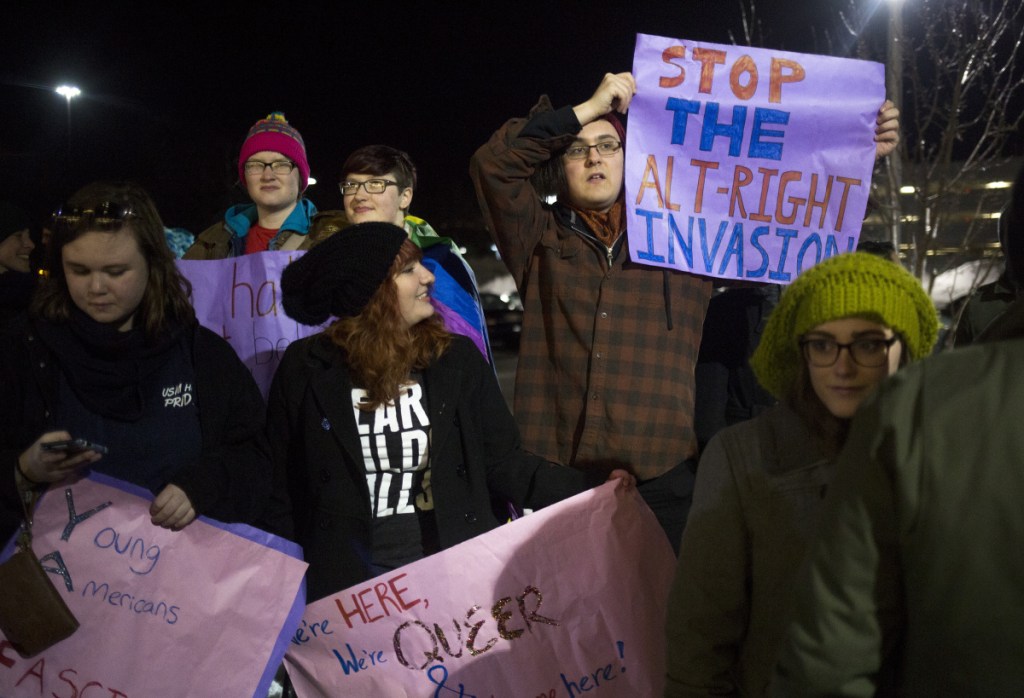The idea that Americans are rapidly losing confidence in our nation’s colleges and universities has emerged as a popular theme among today’s opinion writers. As these pundits aptly point out, the academy’s precipitous fall from grace corresponds with the political right’s increasingly fervent characterization of it as a place plagued by liberal bias and elitism. Most of my fellow academics are quick to dismiss such accusations as a sort of “fake news.” I say, we fail to acknowledge the merit of these claims, and the consequences of them, at our peril.
To begin, there is nothing fake about the claim that higher education has a perception problem. A recent Gallup survey found that 56 percent of Democrats report confidence in colleges and universities, compared to just 33 percent of Republicans. A Pew survey found that 58 percent of conservatives believe colleges and universities have “a negative effect on the country.”
It may be tempting to attribute this divide to conservative thought leaders’ unfairly branding higher education as out of touch with the concerns of average Americans by calling attention to select events occurring on our more than 5,000 campuses. But study after study has documented an imbalance in professors’ political views and party identification, including a 2016 survey of more than 7,000 professors that found that liberals outnumbered conservatives 11.5 to 1. According to another study, the imbalance is even more acute in New England, where conservative professors are outnumbered 28 to 1!
It is imperative that we address this imbalance. First, doing so is critical to the academy’s primary functions to create new knowledge and prepare individuals for engaged citizenship. The marketplace of ideas cannot function optimally without a range of perspectives in the mix. And the integrity of this marketplace is more important today than ever, as social media and cable news have created self-contained intellectual bubbles, limiting opportunities for discourse among competing perspectives.
Secondly, addressing this imbalance will help restore public confidence in the academy, so that the roles it plays in leading innovation, engaging in scientific research and humanitarian scholarship and preparing students for essential workforce needs are not overshadowed by perceptions of political bias.
The question becomes: How do we address this imbalance?
To begin, we must value ideological diversity in faculty hiring, just as we have valued diversity in ethnicity, gender and sexual orientation. We can adopt strategies that have proven successful in promoting these other forms of diversity, such as: 1) making the issue an institutional priority; 2) ensuring ideologically diverse search committees; 3) training search committees to become aware of their own biases; and 4) actively targeting publications, organizations, conferences, etc., popular among conservatives.
We must also design academic programs and courses that reflect a greater range of ideological perspectives. This does not mean giving equal attention to all perspectives. There is no need to give more than passing reference to flat Earth proponents in geography courses, for example, since the data are clear on the question of the Earth’s shape. But we must welcome honest and robust debate on controversial topics on which the evidence remains inconclusive.
We must welcome speakers representing the full range of ideologies, including politically conservative ones. Some institutions already make sincere efforts to do this, including my own, the University of New England. But we all must do more.
When student groups express their intention to protest controversial speakers, we should seize these teachable moments to help them appreciate that the “heckler’s veto” is incompatible with the free exchange of ideas. Faculty can model hearing out and engaging with these speakers. And instead of bowing to pressure to cancel events, we should insist that speakers participate in panel discussions or question-and-answer sessions with others holding different views.
Our nation’s colleges and universities are among the most successful and enduring institutions the world has ever known, and are critical to the good functioning of civil society. But they can achieve their full potential only if they foster ideological diversity and robust dialogue. With honest self-reflection and concerted effort, we can bring greater balance to our campuses. Doing so will allow the academy to better fulfill its mission, and will help ensure that, as future years begin, the columnists and public opinion polls will be telling a different story.
James D. Herbert is president of the University of New England.
Send questions/comments to the editors.



Success. Please wait for the page to reload. If the page does not reload within 5 seconds, please refresh the page.
Enter your email and password to access comments.
Hi, to comment on stories you must . This profile is in addition to your subscription and website login.
Already have a commenting profile? .
Invalid username/password.
Please check your email to confirm and complete your registration.
Only subscribers are eligible to post comments. Please subscribe or login first for digital access. Here’s why.
Use the form below to reset your password. When you've submitted your account email, we will send an email with a reset code.